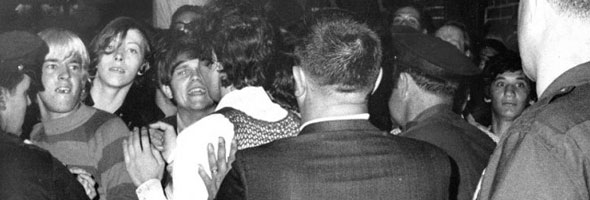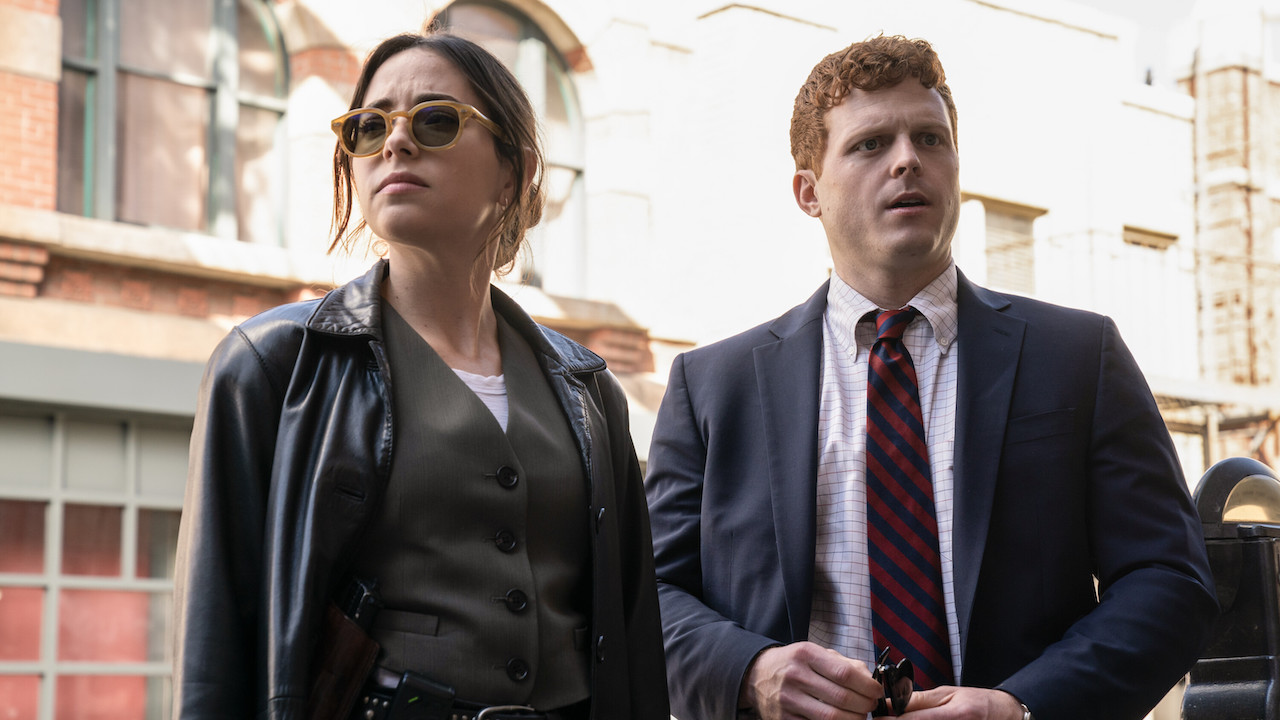In the wee hours of June 28th, 1969, it business was as usual at the Stonewall Inn. The Mafia-run gay bar operated as a free zone for homosexuals in need of a place of refuge where they could just be themselves, hang out and, most notably, dance with each other, an activity that was forbidden everywhere else. With the mob paying off the police, facility operators were often tipped-off when a raid was about to occur and they usually happened in the early evening, when attendance was at a minimum. June 28th was a different story and that is the focus of the documentary Stonewall Uprising.
A small team of police officers came in, the lights went out and not only were the patrons well aware of what was going down, but so were the crowds forming on the streets. As people began to emerge from the bar, the tension increased and the officers that initiated the raids were forced to barricade themselves inside the bar for protection. Eventually backup arrived, but so did more supporters. The riot lasted through the night and not only did it continue for the next two, but the events at Stonewall created a ripple effect that can be felt to this day.
Think that brief synopsis sounds compelling? Wait until you hear about it for yourself from the people who were actually there. Rioters include Raymond Castro, Martin Boyce, John O’Brien, Danny Garvin and many more as well as Seymour Pine, the NYPD office who led the raid. Filmmakers Kate Davis and David Heilbroner have assembled a well-rounded group of interviewees making for the perfect amalgamation to recreate the events of those evenings. If only they’d made more of an effort to ensure we could differentiate one from the other throughout the film.
This isn’t an issue when it comes to Pine because he dons an NYPD hat during his interview, but in the case of the rioters, it’s extremely difficult to figure out who’s who. The most memorable are the ones who can provide particular anecdotes, like Yvonne Ritter who was celebrating her 18th birthday on the night of the raid and Garvin who recounts the painful time when he first realized he was gay after which he attempted suicide. The other subjects do contribute to the recreation of those nights and offer compelling details, but in the end, will only be remembered as typical documentary talking heads.
However, Stonewall Uprising isn’t a film that relies on its characters, its one that gains momentum through the recounting of history. Only the latter portion of the film is devoted to the retelling and reenacting of the Stonewall riots; the first provides an overview of the situation at the time and for someone who wasn’t around in the 60’s or was just never aware of the details. This segment of the film is particularly profound. Having grown up in a time and place where homosexuality still faced hurdles, but was widely accepted, the fact that anti-gay PSAs ever existed is overwhelmingly absurd. In one featured ad a gay man lures a young boy on a daylong excursion where the man is described as having an illness that “was not visible like Smallpox, but no less dangerous and contagious.” It seems more like a Saturday Night Live parody than a serious message designed for the public good.
The buildup provided by this portion of the film only makes the section that delves into the moment-by-moment retelling of the Stonewall riots more meaningful. It plays out as though the film is a drama at the end of which a situation boils over into a powerful culmination and, when that action subsides, we’re left with the positives effects, namely the creation of the Gay Pride Parade; it’s as happy of an ending as ever. The only element of this film that doesn’t quite sit right is the reenactments. Yes, the filmmakers include a brief disclaimer at the beginning of the film, but the mock material blends so seamlessly into actual archival footage, it’s extremely difficult to draw the line. Of course Davis and Heilbroner had little choice in this matter, for no footage of the riot was recorded, but the reenactments feel so clear they create a bit of confusion.
Stonewall Uprising is worth seeing for its historical value. It’s an excellent source of information for those who know little of this monumental occurrence. Not only does it appropriately provide a general understanding of the oppression homosexuals were dealing with at the time, but it uses insightful firsthand accounts to deliver an immersive retelling of the main event. For those with no need for a Stonewall riots 101, the documentary has little to offer. The interviews were conducted with a single purpose: to accurately recount the events of those nights. If you’re looking for more, you won’t find it here.
Staff Writer for CinemaBlend.












